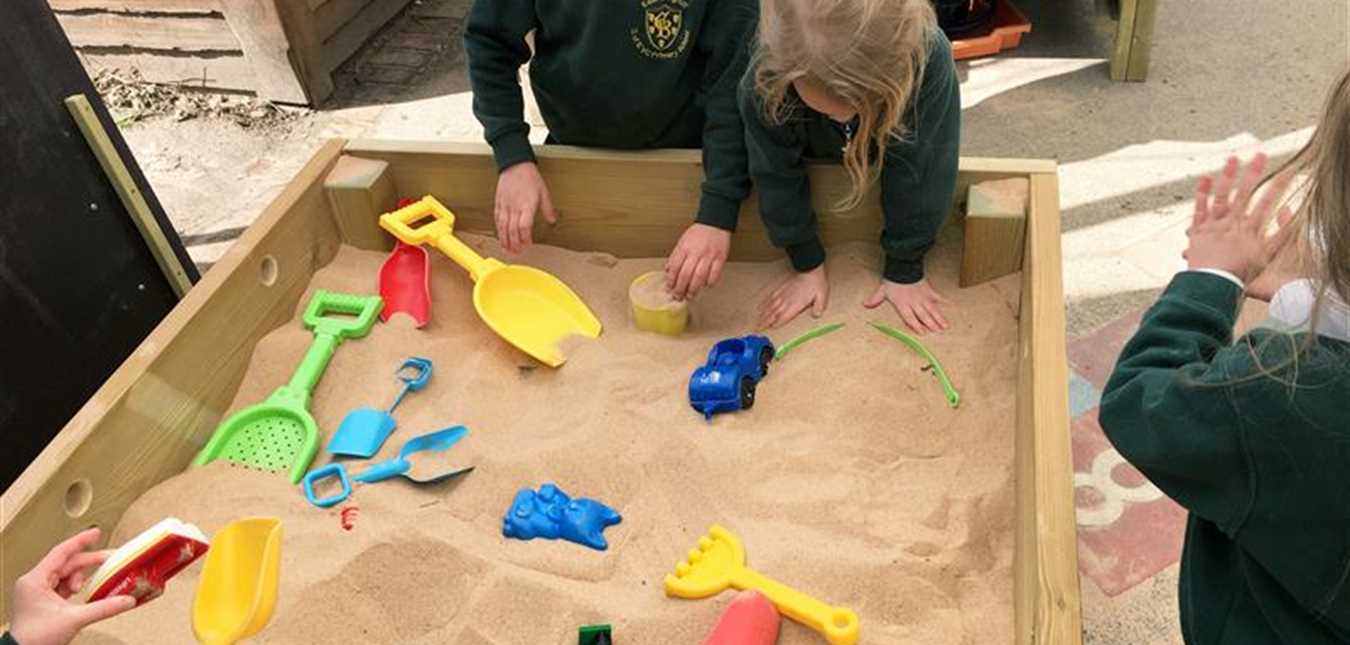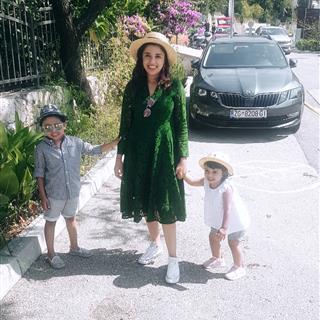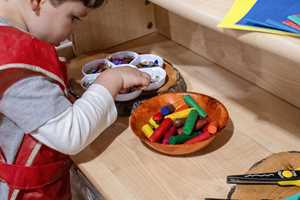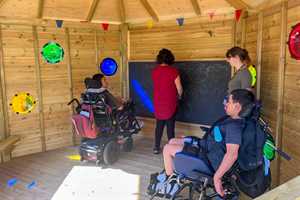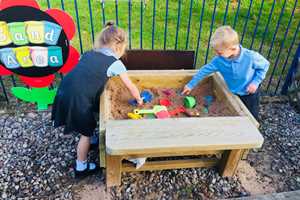
Special Educational Needs
Outdoor Play Equipment For Children With Sensory Processing Disorder
What is Sensory Processing Disorder?
Sensory processing disorder (SPD) can be characterised by the difficulty experienced by the brain when trying to integrate information received by the senses.
The neurological disorder was first identified by Dr. A. Jean Ayres in 1960. Often sensory processing disorder can be identified in people with other neurological conditions such as; autism spectrum disorder.
How does Sensory processing disorder affect children?
Many children with sensory processing disorder are hypersensitive to things in their environment. Everyday sounds may be agonising and perceived as being deafening (Hyperacusis), bright lights may seem blinding. They may take touching things such as sand or with a moist texture as chafing or extremely unpleasant.
These children struggle to correctly understand the world and comprehend information from place to place.
How a child reacts to sight, taste, touch and sound can be observed through their emotional reactions.
It is not common for children with sensory processing disorder to be mistakenly labelled as badly behaved and uncooperative.
How can Schools help Children with Sensory Processing Difficulties?
Occupational Therapists are trained healthcare professional who specialise in children with sensory processing difficulties, they can work with children at home and at school to help habilitate and desensitise children with these problems.
If they haven’t already been referred to an occupational therapist then consider doing so, early invention is key.
Whilst there is no medication to treat sensory issues, targeted therapies can be adopted by teachers and schools to help children suffering from these difficulties.
Children with Sensory Processing Difficulties benefit from playing outdoors
Research suggests that outdoor play progresses attention and delivers a perfect environment for an attentive state and for amalgamation of sensory input.
The playground can be instrumental for teachers and therapists as it stimulates all the senses.
Focusing on specific activities using readily available playground apparatus can be valuable to sensory needs.
We liaised with an occupational therapist to come up with suggestions for playground activities to assist children with sensory processing disorder (difficulties).
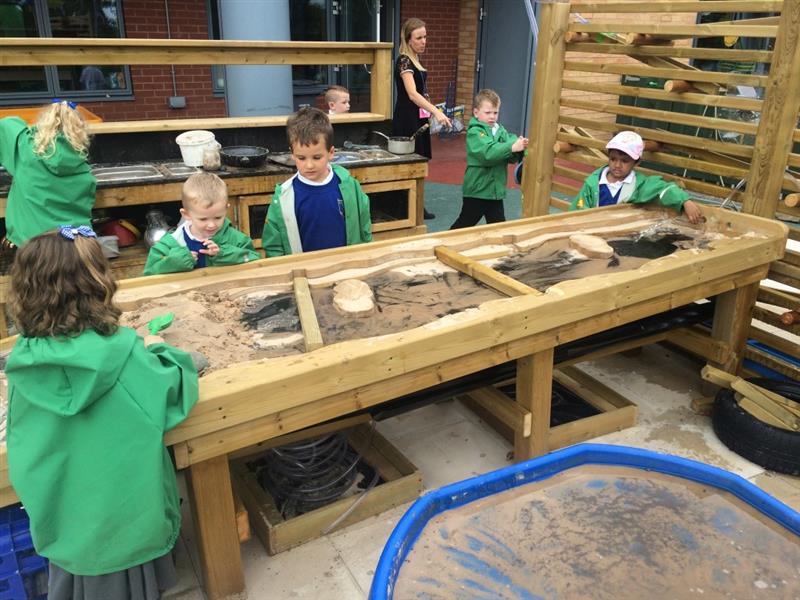
Mud Kitchen
The mud kitchen is great for allowing children to discover the world around them, it exposes children particularly with sensory issues to touch a variety of textures, whilst taking the focus off therapy and making it part of play.
This is brilliant way of encouraging and incorporating ‘messy play’, the child has control of how much or little they want to discover, touch and explore.
The more they take part, it desensitises them and familiarises them to these textures.
Sensory Arbour
Central auditory processing disorder is a condition that affects children’s ability to understand sounds around them.
Hearing may be within normal limits; however, these children struggle to decipher what they are hearing or have heard.
The sensory arbour is a great way of improving auditory skills in these children, the visually stimulating environment completed with musical instruments and chimes, expands the auditory memory and familiarises children with sound, whilst building attention skills.
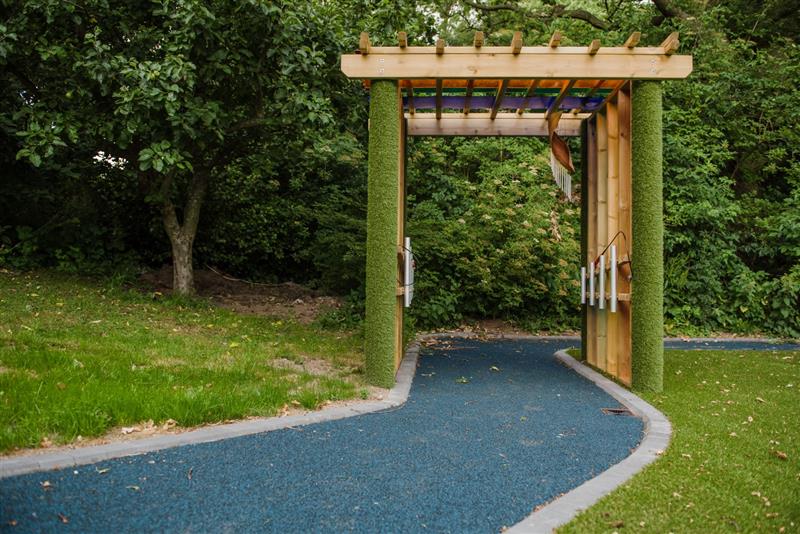
Water and Sand Play Equipment
When it comes to sensory processing disorder, water and sand play tables might be avoided as these children do not like the sensations and textures on their skin.
But then again, consistently evading these activities could be the opposite of what you are trying to attain.
It is important to consider that messy play is fundamental to dampening sensory issues.
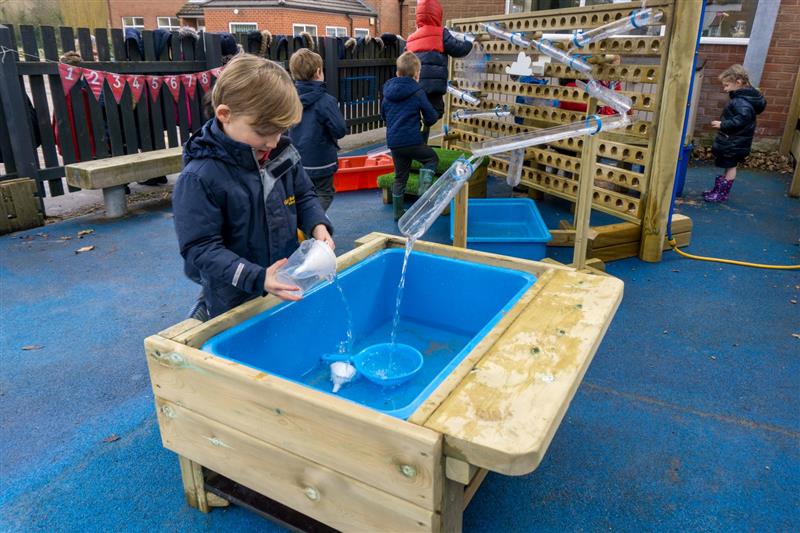
You could begin a programme where initially these children can observe their peers exploring the tables.
As time progresses (you and the child could set a timeline) offer them the opportunity to participate. A toy could be offered so that they do not have to make direct contact. With lots of positive reinforcement and encouragement, steady progress can be achieved.
The key is not to force these children but to advance their tactile skills and tolerance of textures.
Magnifying glass to inspect grass and look for creatures
Visual processing disorder is when the brain is unable to comprehend information gathered by the eyes.
Unlike a visual impairment that can be corrected by glasses, visual processing disorder is not a vision problem.
Children can be given a magnifying glass to scrutinise their surroundings and look for specific things. This supports focus whilst using a visual aid and movement.
Although the instructions are broad such as “look for an ant”, this uses several different pathways such as the visual pathway, proprioception and movement, they may even advance their tactile skills by moving grass out of the way for better observation.
At Pentagon, we understand that sensory processing difficulties can make daily functioning difficult for children, however, through extensive research, we know that some of the issues experienced can be improved over time.
Therefore, we have designed specific play equipment to help progress sensory skills in children. We have also completed many playground projects in specialist schools with precise requirements. Please Contact Us for more information.



